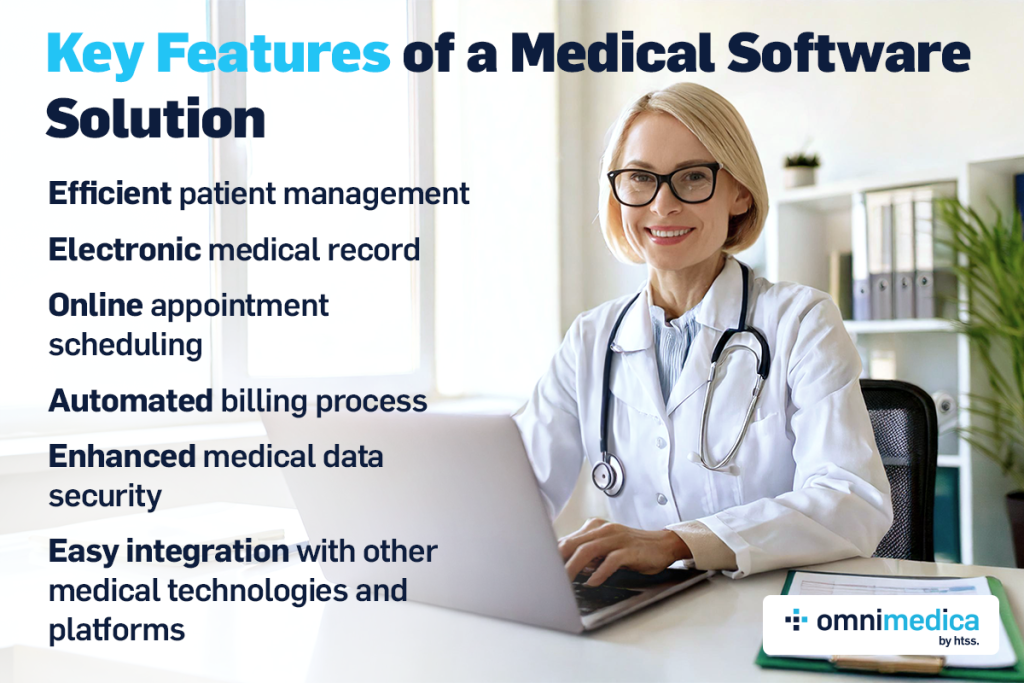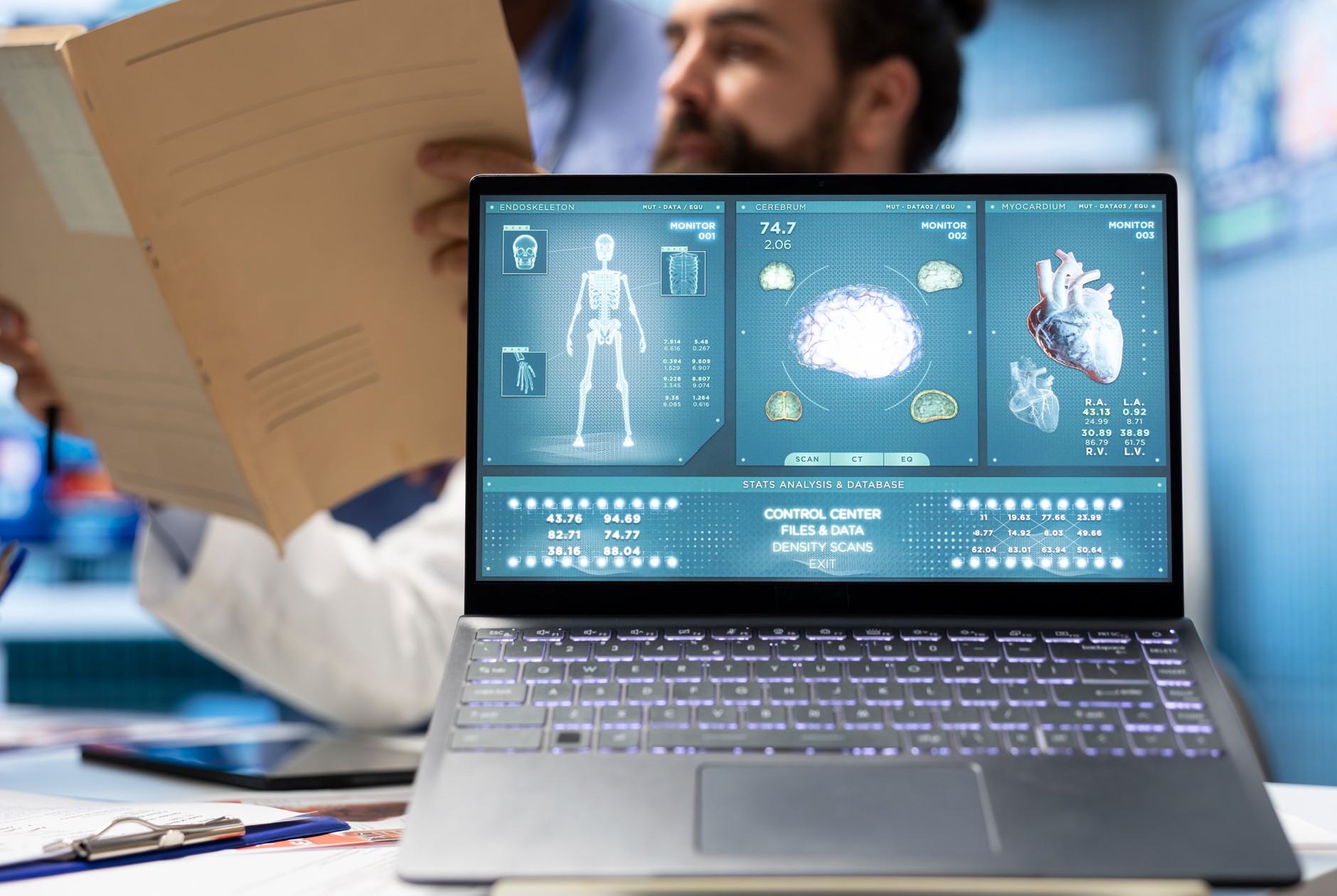- Essential factors in choosing a software solution for the medical field
- The advantages of implementing a software solution in medical offices and clinics
- Key features of a medical software solution
- The ideal solution for clinics and medical offices
Choosing a software solution for the medical field can be a complex but essential decision for streamlining the activities within a clinic or medical office. The right solution can transform how medical services are managed, from appointments and patient management to automated billing and the security of medical data. In this article, we will discuss the main criteria for selecting the best software solution and how it can bring significant advantages to the medical field.
Essential factors in choosing a software solution for the medical field
Selecting a software solution for the medical field is a complex process but crucial for the efficiency and success of any clinic or medical office. An appropriate solution optimizes patient management, ensures regulatory compliance, facilitates communication, and improves the patient experience. Therefore, it is important to focus on certain essential factors that will influence the software selection. Here are a few of them:
Identifying the specific needs of the clinic or medical office
The first step in choosing medical software is identifying the specific needs of your institution. Every clinic or office has different requirements depending on its size, specializations, and patient volume. For example, a large clinic might need a complex patient management system and integration with other medical systems, while a small office may prioritize simple online scheduling and automated billing solutions.
Ensuring compliance with medical legislation and regulations
It is essential that the software solution you choose complies with local and international health regulations, such as GDPR in the European Union. Medical data security is a priority, and the chosen solution must offer strong guarantees regarding the protection and confidentiality of electronic medical records.
Essential functionalities
A medical software solution should include essential functionalities such as patient management, electronic medical records, online scheduling, and automated billing. These features not only simplify the work of medical staff but also contribute to increased operational efficiency.
Customization and scalability
Depending on your clinic’s growth, it is important that the software solution is scalable and customizable. A rigid solution that cannot be adapted to the needs of the business as it evolves will quickly become outdated. Opt for a solution that can be modified and expanded according to future requirements.
Integration with other systems and medical technologies
Integration of the software with other medical systems and technologies is crucial for efficient management. Ensure that the software can connect to existing equipment and systems, such as medical laboratories, imaging, or telemedicine systems. Efficient integration reduces errors, improves workflow, and facilitates access to information.

The advantages of implementing a software solution in medical offices and clinics
Implementing modern medical software, such as Omnimedica, brings numerous benefits to clinicians and administrative staff. Here are some of the main advantages:
Increased operational efficiency
Automation of processes, from scheduling and automated billing to managing electronic medical records, reduces the time spent on administrative tasks, allowing staff to focus more on patient care.
Quick access to information
A medical software solution facilitates quick access to patient records and history, helping doctors make more informed decisions.
Online scheduling
Patients can make appointments online directly through the platform, reducing wait times and scheduling errors.
Data security
Modern medical software ensures the protection of patient data, complying with strict regulations regarding confidentiality and the security of medical information.
Key features of a medical software solution
When choosing a medical software solution, it is important to ensure it includes the following key features:
Patient management
An essential feature for any medical software is efficient patient management. This includes creating and updating patient records, tracking treatments, and medical history.
Electronic medical records
This is a central component of any modern software system. Electronic medical records facilitate the storage, updating, and quick access to patient data, providing a complete picture of their health status.
Online scheduling
Allows patients to schedule consultations online, avoiding phone congestion and reducing scheduling errors.
Automated billing
Automation of the billing process saves time and reduces the risk of human errors.
Medical data security
A medical software solution must offer high levels of security to protect patients’ sensitive information from unauthorized access.
System integration
A modern solution should easily integrate with other medical technologies and platforms to ensure a smooth and efficient workflow.
The ideal solution for clinics and medical offices
The medical software solution must be well adapted to the needs of your institution, offering essential functionalities and clear advantages to improve operational efficiency and the quality of services offered to patients.
Omnimedica is a modern platform that transforms the way clinics and medical services are managed, eliminating the need for physical documents and offering a seamless, always-available solution through online access.
If you want to learn more about how a medical software solution can improve the management of your office or clinic, contact us for a free consultation and discover how Omnimedica can transform your business.




